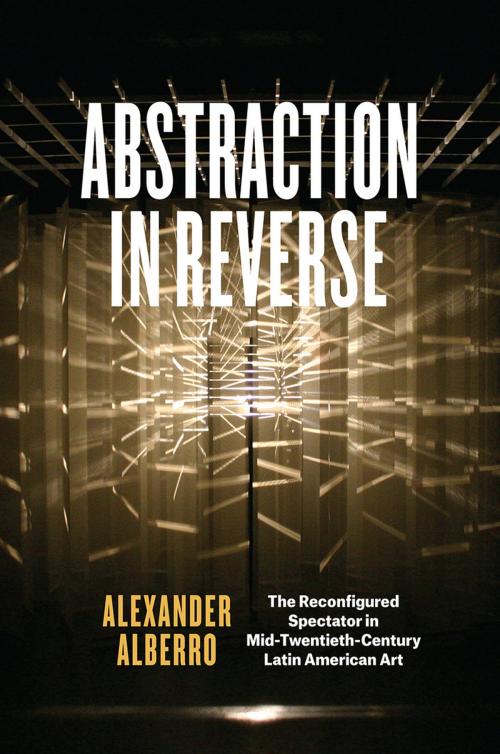Abstraction in Reverse
The Reconfigured Spectator in Mid-Twentieth-Century Latin American Art
Nonfiction, Art & Architecture, General Art, Art History, American| Author: | Alexander Alberro | ISBN: | 9780226394008 |
| Publisher: | University of Chicago Press | Publication: | May 25, 2017 |
| Imprint: | University of Chicago Press | Language: | English |
| Author: | Alexander Alberro |
| ISBN: | 9780226394008 |
| Publisher: | University of Chicago Press |
| Publication: | May 25, 2017 |
| Imprint: | University of Chicago Press |
| Language: | English |
During the mid-twentieth century, Latin American artists working in several different cities radically altered the nature of modern art. Reimagining the relationship of art to its public, these artists granted the spectator an unprecedented role in the realization of the artwork. The first book to explore this phenomenon on an international scale, Abstraction in Reverse traces the movement as it evolved across South America and parts of Europe.
Alexander Alberro demonstrates that artists such as Tomás Maldonado, Jesús Soto, Julio Le Parc, and Lygia Clark, in breaking with the core tenets of the form of abstract art known as Concrete art, redefined the role of both the artist and the spectator. Instead of manufacturing autonomous art, these artists produced artworks that required the presence of the spectator to be complete. Alberro also shows the various ways these artists strategically demoted regionalism in favor of a new modernist voice that transcended the traditions of the nation-state and contributed to a nascent globalization of the art world.
During the mid-twentieth century, Latin American artists working in several different cities radically altered the nature of modern art. Reimagining the relationship of art to its public, these artists granted the spectator an unprecedented role in the realization of the artwork. The first book to explore this phenomenon on an international scale, Abstraction in Reverse traces the movement as it evolved across South America and parts of Europe.
Alexander Alberro demonstrates that artists such as Tomás Maldonado, Jesús Soto, Julio Le Parc, and Lygia Clark, in breaking with the core tenets of the form of abstract art known as Concrete art, redefined the role of both the artist and the spectator. Instead of manufacturing autonomous art, these artists produced artworks that required the presence of the spectator to be complete. Alberro also shows the various ways these artists strategically demoted regionalism in favor of a new modernist voice that transcended the traditions of the nation-state and contributed to a nascent globalization of the art world.















